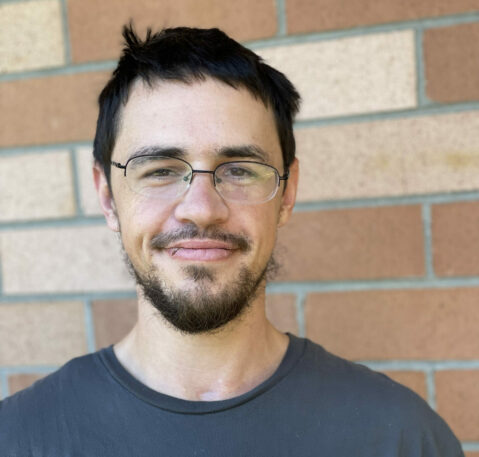Jonathan is 35 years old but doesn’t look a day over 20. “Prison preserved me,” he says with a laugh when we sit down to talk. But I think it’s more than that. I think a lifetime of neglect, of punishments without impact, have thrust him into a delayed adulthood that he’s finally learning to navigate. Now, at 35, after a childhood spent expelled from school and almost 13 years in prison, he’s finally learning to care, and understanding the consequences of a life without restraints.
This is Jonathan’s story.
* * * *
Jonathan was very small when his parents split. He was three, maybe four, but he knows it was for the best. His father was drunk a lot, and his parents fought. “There was a lot of arguing,” he says. “A lot.” At least that stopped when his father left.
However, the change thrust his mother into single-parenthood, trying to care for Jonathan and his two siblings. They moved a lot and Jonathan attended numerous elementary schools, where he was always known as a class clown with a fiery temper. He fought a lot, got caught a lot, and even set fires in the woods. Detentions and suspensions followed, but that was fine with Jonathan. He never got in trouble at home.
Case in point: Jonathan was held back several times, and when he failed two classes in the 6th grade, he was supposed to repeat the year. However, he’d aged up. The school considered him too old for 6th, so they promoted him to 7th. In the first week of 7th grade, he got into another fight and was immediately expelled. What did he do that year? “My mom let me do whatever I wanted to do since I could walk,” he says. He spent the year playing video games with no schooling he can recall, although he was already on probation in the criminal justice system before the age of 15.
The next year, he went to school again, expecting to re-start 7th grade. Nope. They put him in 8th, where the classes were already too advanced for the boy who’d just missed an entire year. He acted out, got in another fight, and this time was taken into custody of the state. They sent him to Georgetown Marine Institute (now AMIKids Georgetown) where, for the first time in his life, Jonathan found routine and structure. “I liked it,” he says. “But the schooling was sort of an afterthought.”
The cycle continued. He moved up at Georgetown, graduating their program in about 8 months, but learning very little. When he returned home and they sent him to his freshman year of high school (at age 16), he was baffled. “I was so far behind, it was like Chinese on the board,” he says. “I didn’t know what they were talking about.” He skipped classes and acted up. Again.
Jonathan’s aunt tried to help. A former teacher, she took him in, gave him rules and boundaries. Predictably, however, he bucked the system, used to having his own way and making his own rules. Nowadays, he says, “I wish I would’ve stayed with her when I was a kid. I would’ve been brushing my teeth and doing the things I was supposed to be doing.”
Instead, he left.
In the 9th grade he beat someone up and, knowing he was already on probation and would face jail time if caught, he stole a car and headed for Mexico. He was hoping to wait out the days until he turned 18 and his court record was sealed by hanging out on the beach. Instead, he was captured in Plano, Texas, and flown back to Charleston. His aunt bailed him out, convincing the courts to keep him on house arrest instead of in jail. But Jonathan was determined to live how he wanted.
“I didn’t know right from wrong,” he says. “It didn’t matter to me. I didn’t care about being in trouble. I didn’t care about anybody.”
The cycle continued. More fighting, another escape, this time to Miami, where police caught Jonathan and beat him up pretty badly. This time when his aunt arrived, he left her behind, too. He fled to North Carolina where he hid out, living a straight life with a cousin who was excelling in school at NC State. For a couple of years, Jonathan proved he could do it. He held a job, paid his own bills, worked out. He was surrounded by good influences, and they rubbed off on him.
Homesickness was heavy on him, though, so as soon as he was able (18 years old, juvenile records sealed), he headed back to Charleston, where old friends and old habits immediately took over. There were more fights and a lynching charge that set Jonathan back on probation. (In the State of South Carolina, “lynching” is defined as any sort of “mob” against one fight. If two people jump one, they can be charged with lynching. The more you know!) And when he went with a friend on a drug deal (Jonathan was also dealing at the time) that turned into a house-wide shakedown, Jonathan was picked up for armed robbery, and the courts threw the book at him. He was sentenced to 15 years, of which he served 85% (12 years, nine months).
But to the boy who’d spent his entire life in trouble, what was another sentence? It didn’t require him to change his life too much, really. Addicted to drugs throughout his incarceration, the impact of his life’s choices really didn’t set in.
Until Turn90 found him, that is. Or maybe until he found himself. Either way. He came to Turn90 because he needed a job, but here he found a support system and people who care. You get the impression when talking to Jonathan that it’s the caring that matters most to him. That, and the Turn90 social skill steps. “I use the steps all the time,” he says. “People have offered for me to sell drugs, but I used the steps to say no.”
Today Jonathan is clean, off drugs since he got home from prison. He has goals – a job, a car, and a house. He’s got the job here at Turn90 and recently bought a car, taking out a loan with a bank. The house will come next, he thinks. He wants a manufacturing job after his graduating, where he can work as many hours as possible to help him meet his goals.
The impact of a life spent without consequences is something he thinks about a lot. “If I have kids in the future, I don’t want that for them,” he says. “I love my mom to death but that’s not the way to raise children. I did whatever I wanted, and I never had to care.”
* * * *
Jonathan, we see you caring, every day. Keep up the hard work and we know you’ll reach all your goals.

